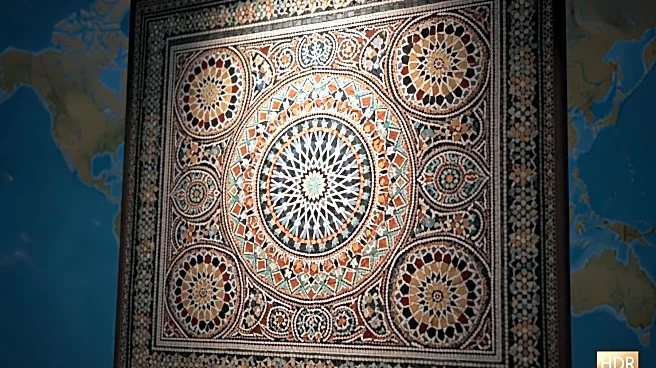What's Happening?
Syrian President Ahmad al-Sharaa has arrived in New York to participate in the United Nations General Assembly, marking the first time a Syrian head of state has attended in nearly six decades. Al-Sharaa, who came to power following the ousting of Bashar Assad, is seeking to restore Syria's ties with Arab nations and the West. His visit is expected to focus on advocating for sanctions relief to aid Syria's recovery from years of civil war. Al-Sharaa's government has faced challenges, including accusations of sectarian violence and strained relations with Israel, which has conducted airstrikes on Syrian military sites.
Why It's Important?
Al-Sharaa's participation in the U.N. General Assembly signifies a potential shift in Syria's international relations, as the country seeks to rebuild and reintegrate into the global community. The lifting of sanctions could provide much-needed economic relief and support Syria's reconstruction efforts. However, the country's complex political landscape, including its relations with Israel and internal sectarian tensions, presents significant hurdles. The international community's response to Syria's overtures will be crucial in determining the country's future trajectory and stability in the region.
What's Next?
Al-Sharaa's visit may lead to further diplomatic engagements aimed at easing sanctions and improving Syria's international standing. The upcoming parliamentary elections in Syria, although not conducted through direct popular vote, could influence the country's political landscape. Additionally, ongoing negotiations with Israel regarding security arrangements may impact regional dynamics. The outcomes of these developments will be closely monitored by global stakeholders, as they could affect regional security and international relations.










